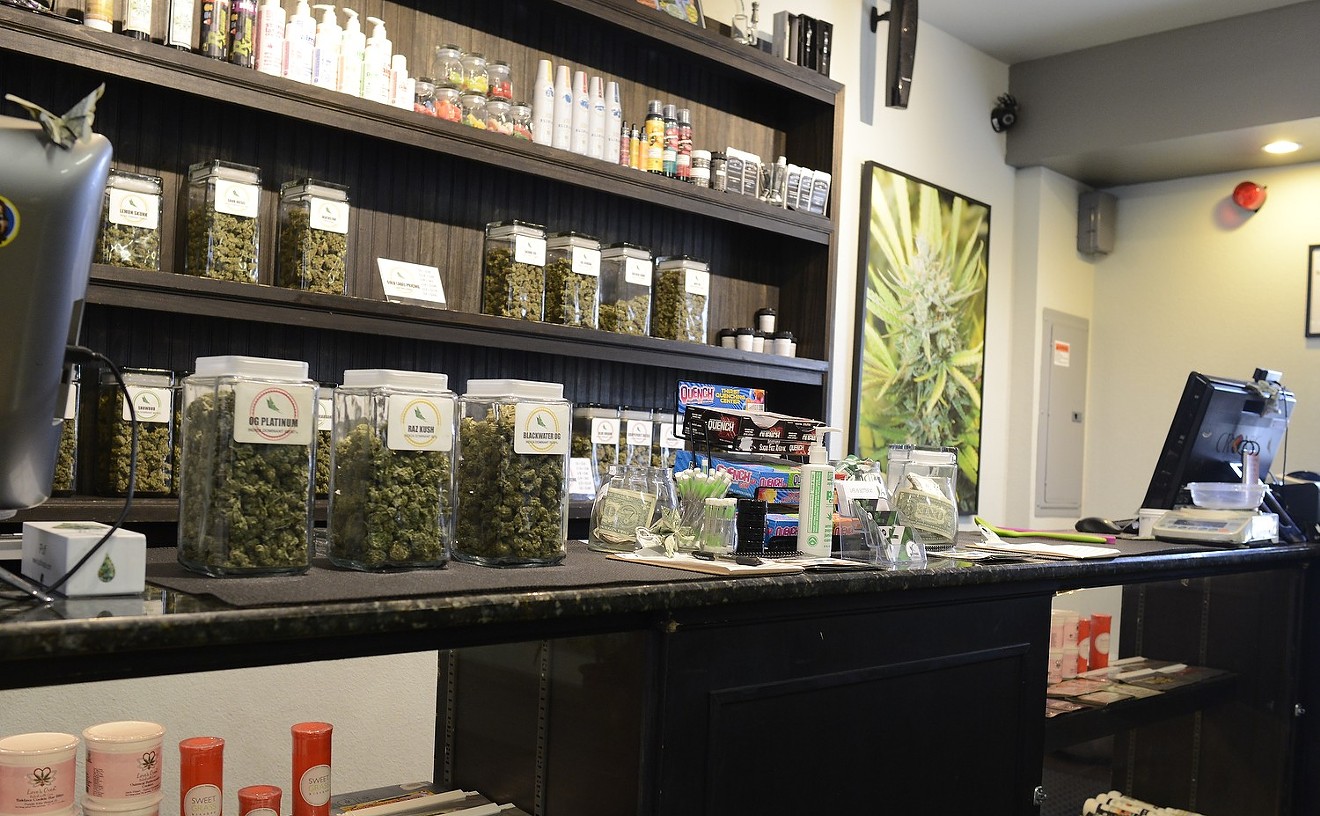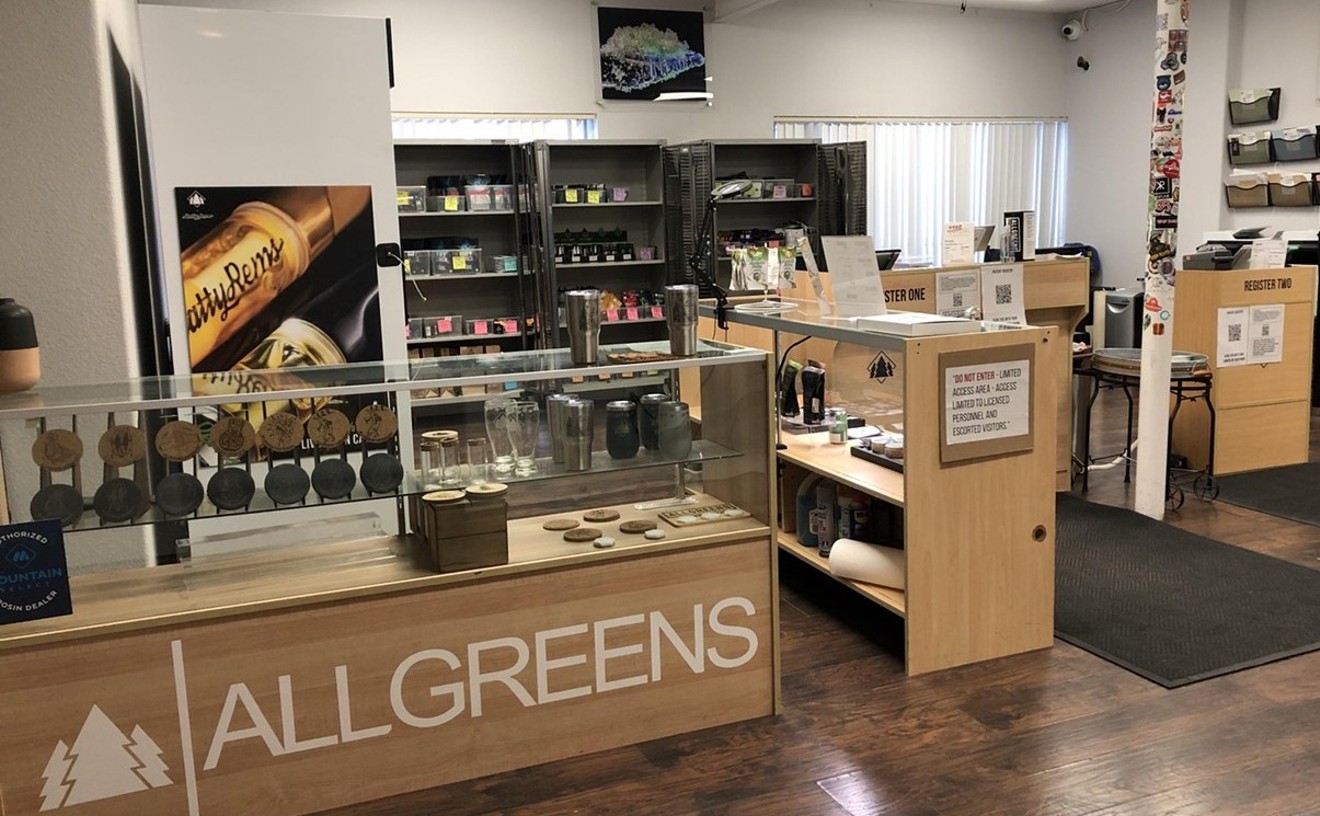“It’s much darker and uglier than we as a society want to admit,” Kingsbury says. “We [like to] cheer for them and root for them when they’re on the field — and then we couldn’t give two shits for them when they’re not.”
In 2016, Kingsbury co-founded Denver-based Athletes for Care, or A4C, a nonprofit meant to help former athletes move into a world not wholly consumed by sports — a transition that leaves many lost without the coaching and competitive environments they’re used to. But the beacon that Kingsbury’s organization uses to guide former jocks into their new lives — cannabis — is still largely banned in the industry.
While it’s no secret that a large number of professional athletes consume cannabis, professional leagues such as the NFL, NBA, MLB and NHL have sweeping policies against its use, and finding current players willing to open up about it are rare. Kingsbury hopes that A4C can speak for an unrepresented segment of users who fall somewhere between medical marijuana patients on one end of the spectrum and stereotypical recreational stoners on the other.
There are two major parts to the organization: One is dedicated to programming such as business training, legal and emotional assistance, and accelerator classes for a healthy life after sports; the other pushes A4C’s mission of research, education and compassion around sports-related injuries, such as concussions, and opioid alternatives like cannabis. Former football player Eben Britton teaches a self-reflection course, while veteran hockey enforcer Riley Cote guides members through health and wellness exercises. Funds raised by the organization will benefit a variety of causes important to its members. A4C’s scientific advisory board researches various initiatives it wants to fund; athletes most recently voted in favor of funding research on traumatic brain injuries and developing sports equipment with maximum head protection.
The group wants to reach amateur athletes as well as pros. Sponsoring public events like last year’s kickball tournament at the annual 4/20 Games has been a grassroots way for A4C to do outreach while also demonstrating that those who consume cannabis can still be active. Kingsbury supports the notion of an active-lifestyle consumer, pointing out that his enjoyment of the plant doesn’t stop him from jogging regularly or coaching his child’s soccer team.
Most people don’t expect someone who’s 6’4” and 220 pounds to both work out and use cannabis regularly. “But guess what?” Kingsbury asks. “There’s a lot of them, and people want to hear that story.”
Nearly fifty retired professional, semi-professional and college athletes populate A4C’s membership ranks. They are men and women who’ve been involved in sports ranging from hockey to mixed martial arts; all either consume cannabis or support its use.

(From left) Marvin Washington, Todd Herremans, Eben Britton, Nate Jackson (all former football players) and Lindy Snider speak at a cannabis expo in Pittsburgh.
Courtesy of Athletes for Care
“A lot of us have trepidation about stepping out,” Washington says of athletes keeping their cannabis use in the closet. “We want to let them know it’s fine. We want to set them up.” At A4C, training is available for those interested in launching their own cannabis business, obtaining speaking opportunities, or educating themselves on the science and laws behind cannabis. While Washington acknowledges the importance of getting “rid of the stereotypes and negative connotations,” he adds that strength in numbers is also critical.
Players’ unions and expensive lawyers aside, no one has yet managed to get cannabis fully removed from any pro league’s list of banned substances. (Hemp-derived CBD can be used, but there’s still a risk of it metabolizing into THC and causing a failed drug test.) NFL free-agent running back Mike James made history in March as the first player to file for a therapeutic-use exemption for cannabis, but the NFL denied his request in April. And until the federal government de-schedules or re-schedules cannabis, James’s situation is unlikely to change.
But former footballer Nate Jackson says there are ways around a sports league’s drug policy. A Denver Bronco for the better part of six seasons, Jackson says that as long as NFL players pass their annual street-drug tests, they can often get away with using cannabis. “There’s, like, a ‘wink-wink’ as far as getting by with it,” he says. “The teams understand that their guys smoke weed. They’re not dumb about that.”
Jackson says players who choose cannabis over opioids for pain relief, like he did, are less prone to mistakes, depression and forgetfulness off the field, adding that it helped him transition into the real world. Football is very militaristic, he explains, and athletes are usually told what to do and what to say, with creativity largely left out of the equation. And when they’re punted into the real world, they often have no idea what to do next, and there’s no one to guide them.
Depression is “inevitable” for some athletes as they go from “warrior to has-been,” Jackson warns. He says cannabis helped him perceive the world differently and heightened his creativity, helping him grapple with life after sports; he also noticed that his injuries healed faster when he medicated with cannabis.

Nate Jackson has become a national speaker about medical cannabis since retiring from football.
Courtesy of Athletes for Care
“I wanted to try to figure out how to bridge that gap,” Snider says. “Ultimately, players needed to drive these services; they knew their needs better than anybody. They needed to be the ones to articulate this, and I wanted to be someone who connects the dots.”
She teamed up with Kingsbury about eighteen months ago to launch the organization, and the two immediately started gathering athletes to work with — but it wasn’t until last August that they actually got their nonprofit status and could start raising funds. “This is player-driven, and Ryan and I and the volunteers are essentially there to execute their vision,” Snider says. “I think that’s what makes this so unique.”
With a membership pool largely made up of retirees who haven’t yet reached the age of forty, Snider believes the athletes in A4C have much to accomplish. “There’s the notion that there’s life after sports,” she says, “but it’s really about life — and it’s about [athletes] helping themselves and helping others.”











